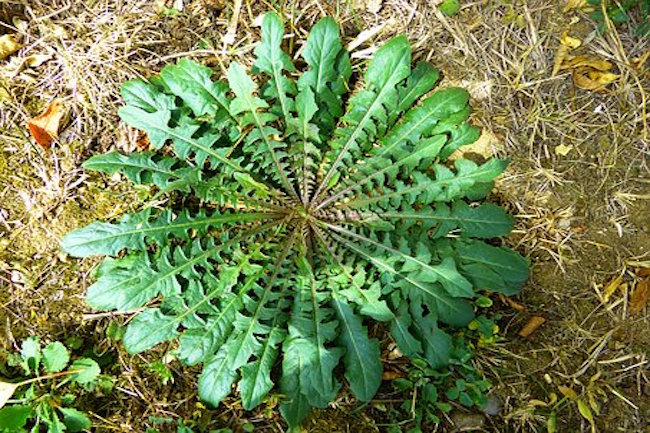What Are Dandelion Greens Good For? by Dr Joseph Mercola for Mercola
Dandelion greens belong to one of the largest plant families — the sunflower — which include more than 20,000 species, such as daisies and thistles.1
The first reference of dandelions being used as a medicine was written by Arabian physicians in the 10th and 11th centuries. Welsh medicines concocted as early as the 13th century made use of dandelions too.2
When gathering this plentiful herb, avoid harvesting in places that may be contaminated with harmful substances like pesticides and lead, or parasites or worms from animal feces. Furthermore, ensure that you’re picking greens from real dandelion plants, and not other similar-looking plants, to prevent consuming inedible portions that may put your health at risk.3
The best time to pick dandelion greens is during spring. Choose the ones that are both young and tender, since these typically have a milder flavor.4
Once done harvesting, wrap them in paper towels and store them in plastic bags in your refrigerator, where they can remain fresh for around three days.5 Avoid washing them because this may lead to spoilage.6
According to “Savor: Rustic Recipes Inspired by Forest, Field, and Farm,” blanching dandelion greens for around one to two minutes may help reduce a sometimes-present acrid taste7 before adding them to salads or sandwiches.8 Try adding dandelion greens to soups or stews,9 as well as to herbal teas.10
Health Benefits of Dandelion Greens
Folk medicine claims the dandelion plant is a powerful healer, used to purify the blood,11 address digestion-related problems,12 and prevent piles and gallstones,13 among other maladies.
The greens of the dandelion provide 535 percent of the recommended daily value of vitamin K,14 which may be the most important source of any other plant-based food15 to strengthen bones,16 but may also play a role in fighting Alzheimer’s disease by limiting neuron damage in the brain.17
Dandelion greens also give the body 112 percent of the daily requirement of vitamin A18 as an antioxidant carotenoid, which is particularly good for the skin,19,20 mucous membranes and vision.21 A flavonoid called zeaxanthin22 (together with lutein, another carotenoid) may help shield the retina from ultraviolet rays and subsequent damage,23,24 while carotenoids like alpha-carotene and beta-cryptoxanthin may help lower the risk of lung and mouth cancers.25,26
Need more benefits? Dandelion greens are high in inulin and pectin,27 which are soluble fibers that may help your body feel full longer, assist with weight control and maintain optimal cholesterol levels. These greens also contain vitamins C and B6, thiamin, riboflavin, calcium,28 iron (crucial for generating red blood cells29), potassium (to help regulate heart rate and blood pressure), magnesium and manganese.30 Other nutrients present in dandelion greens include folate, phosphorus and copper.31,32Dandelion greens are on Dr. Mercola’s most highly recommended vegetables list.
Dandelion Greens Nutrition Facts
To know more about the nutritional prowess of dandelion greens, check out this nutrition facts chart:33
| Amt. Per Serving |
% Daily Value* |
|
|---|---|---|
| Calories | 45 | |
| Calories from Fat | 5.9 | |
| Total Fat | 1 g | 1% |
| Saturated Fat | 0.2 g | 1% |
| Trans Fat | ||
| Cholesterol | 0 mg | 0% |
| Sodium | 76 mg | 3% |
| Total Carbohydrates | ||
| Dietary Fiber | 3.5 g | 14% |
| Sugar | 0.7 g | |
| Protein | 2.7 g | |
| Vitamin A203% | Vitamin C | 58% |
| Calcium19% | Iron | 17% |
*Percent Daily Values are based on a 2,000 calorie diet. Your daily values may be higher or lower depending on your calorie needs.
Studies Done on Dandelion Greens
Studies on dandelion greens’ potential benefits are quite limited. A 2008 study revealed that extracts of young dandelion leaves may promote an anti-obesity effect because of its supposed strong pancreatic lipase inhibitory activity.34
Don’t underestimate the positive impacts of dandelion roots too. A study in 2011 involving the testing of dandelion root extract showed there may be a “kill switch” on leukemia cell receptors by inducing apoptosis. Researchers reported that dandelion root tea didn’t seem to send the same “kill” message to healthy cells. The study concluded that dandelion root extract may prove to be a nontoxic alternative to conventional leukemia therapy.35




